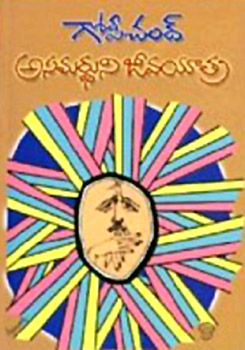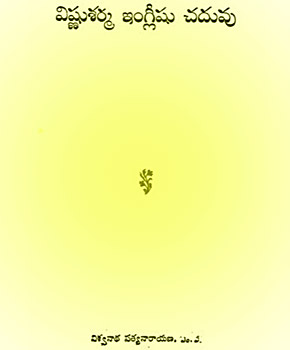 Telugu Novels in the Post-Independence Period saw a significant change in direction due to the influence of a number of national as well as international trends. The Telugu novel enters the age of experimentation in the 1950s because the writers have, by this time, come under the influence of some of the important intellectual and ideological developments of the time, such as Freudian psycho-analysis, Marxian socialism, and European existentialism. Besides, the modernist writings of the West, too, had considerable impact on the creative minds of the time. Furthermore, the writers of the 1950s, coming after the literary giants like Unnava and Viswanatha Satyanarayana, needed to do something different and original in order to emerge out of the shadows of their predecessors. A quest for form and inclination for experimental constructs, hence, become the most dominant features of the Telugu novel in this phase.
Telugu Novels in the Post-Independence Period saw a significant change in direction due to the influence of a number of national as well as international trends. The Telugu novel enters the age of experimentation in the 1950s because the writers have, by this time, come under the influence of some of the important intellectual and ideological developments of the time, such as Freudian psycho-analysis, Marxian socialism, and European existentialism. Besides, the modernist writings of the West, too, had considerable impact on the creative minds of the time. Furthermore, the writers of the 1950s, coming after the literary giants like Unnava and Viswanatha Satyanarayana, needed to do something different and original in order to emerge out of the shadows of their predecessors. A quest for form and inclination for experimental constructs, hence, become the most dominant features of the Telugu novel in this phase.
The psychological novel, probing the inner conflicts and complexes of the human psyche, found favour with a number of writers of this time. Gopichand`s Asmardhuni Jeevayatra (1960) is a powerful fictional rendering of the tragic strife of a common man to come to terms with the society around him. Buchi Babu`s (S. Venkata Subba Rao) Chivamku Migiledi (1946) traces the predicament of a sensitive young man struggling to grow out of a strong oedipal complex. Rachakonda Viswanatha Sastry`s (Ravisastry) Alpajivi (1981), Naveen`s Ampasayya (1982), and Latha`s Prema Rahityamlo Stree (1978) are some of the other successful attempts at the psychological novel, and the authors use the interior monologue and stream-of-consciousness techniques for recording the psychological processes and unravelling the deeper layers of the human psyche.
 As in the case of all post-colonial literatures, political satire became the mainstay of the Telugu novel in the post-independence phase. The writers focus on the aftermath of the colonial rule and offer a satirical description of the new bourgeois government. Kodavatiganti Kutumba Rao`s Chaduvu (1952) deals with the social and cultural changes that took place in middle-class families during the colonial times and exposes the incongruity and absurdity that arose out of a clash of dissimilar cultures. Viswanatha, who continued to write well into the experimental phase, produced delightful satires in Vishnu Sarma English Chaduvu and Pulula Satyagraham. Ravisastry`s Govulostunnai Jagrata and Palagummi Padmaraju`s Bathikina College are among the other notable examples of this trend.
As in the case of all post-colonial literatures, political satire became the mainstay of the Telugu novel in the post-independence phase. The writers focus on the aftermath of the colonial rule and offer a satirical description of the new bourgeois government. Kodavatiganti Kutumba Rao`s Chaduvu (1952) deals with the social and cultural changes that took place in middle-class families during the colonial times and exposes the incongruity and absurdity that arose out of a clash of dissimilar cultures. Viswanatha, who continued to write well into the experimental phase, produced delightful satires in Vishnu Sarma English Chaduvu and Pulula Satyagraham. Ravisastry`s Govulostunnai Jagrata and Palagummi Padmaraju`s Bathikina College are among the other notable examples of this trend.
The more blatantly political novel, fielding specific political issues, is yet another significant development of this period. The writers, who came under the influence of the Progressive Writers Movement, found the novel an extremely effective medium for communicating messages of revolution and progress. A strong faith in the Marxist socialist ideology inspires these writers and their works. G. V. Krishna Rao`s Keelu Bommalu (1952) and Balivada Kantharao`s Dagapadina Tammulu (1961) deserve special mention in this category. Novels that propounded on the Telengana struggle for freedom forms a part of this trend. Bollimunta Sivaramakrishna`s Mrutyunjayulu (1947), Vattikota Alwar Swamy`s Gangu (1965), and Dasarathi Krishllamacharyulu`s Chilian Devullu (1970) offer a moving account of the sufferings of poor farmers under the Zamindari system and urge revolutionary action.
All throughout the twentieth century, even through the 1980`s and 1990`s, the novels continued to be a most popular form. They retained their popularity mostly through periodical serial publications. Thematically, we can identify two important trends in the vast corpus of fictional writing in the last decade and a half: progressive writing addressing the problems of the socially deprived and underprivileged, as in Ravi Sastri`s Sommulu Ponayandi (1980), Allam Rajaiah`s Vooru (1982), and Beena Devi`s Captain Katha (1984), and the feminist novel, offering a systematically worked out feminist ideology, as in Muppala`s Janaki Vimukti (1981) and Volga`s Swechcha (1987). In both these movements, the hitherto marginalized sections are brought into focus, and the privileged centres of the past- the bourgeoisie and the male- are displaced. It may be mentioned here that there was one negative outcome of this phase. The anxiety to sound different and original resulted in a great deal of contrived and mediocre writing. A large number of novels written according to popular formulaic structures depend heavily on violence, superstition, and exorcism. The value of much of this writing is questionable. However, the comprehensive hold that the novel has on the Telugu literary scene is an undeniable fact.



















